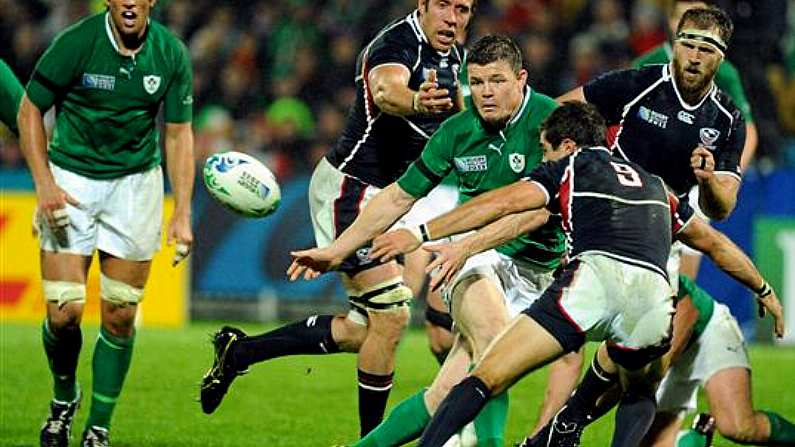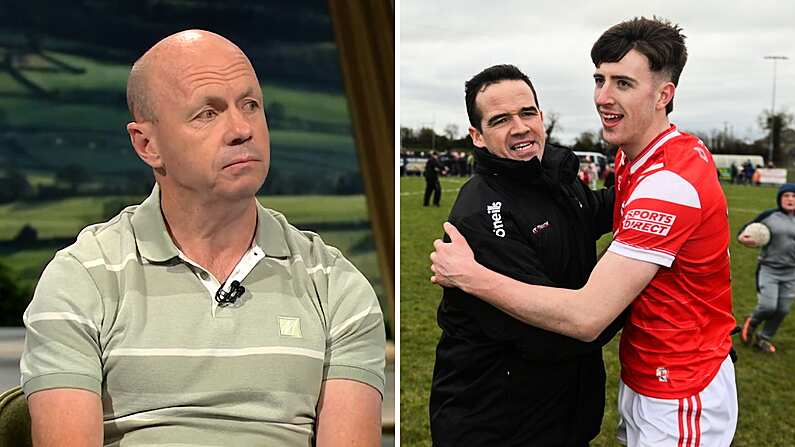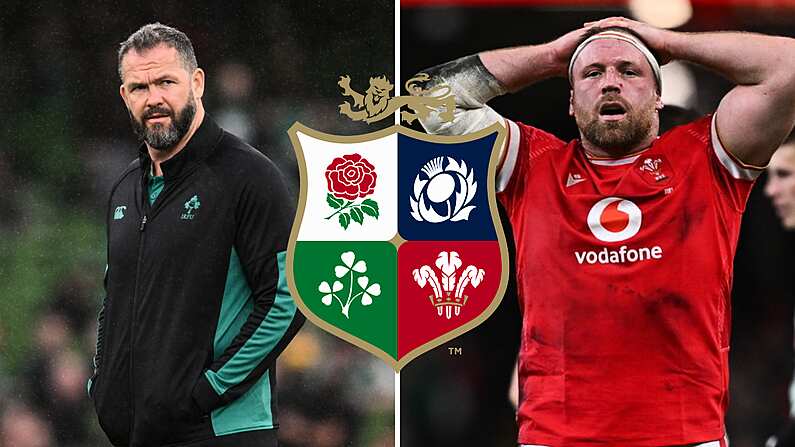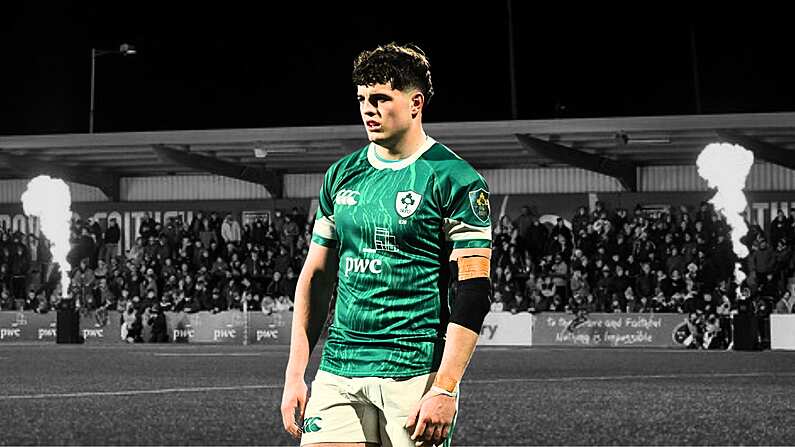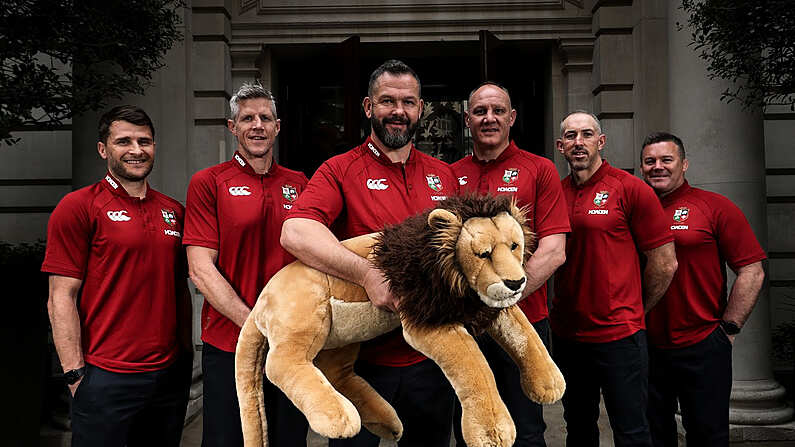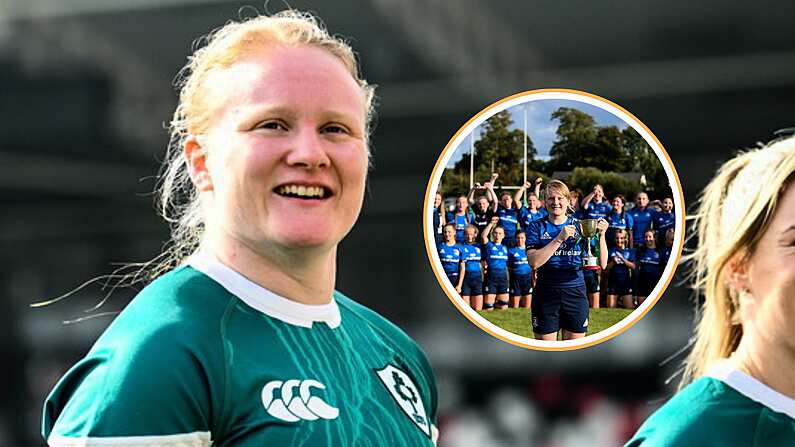Had Ireland lost to Scotland in Saturday's finale, the Six Nations campaign might have been regarded as a worrying failure. Following the victory, the verdict on the season appears to be 'reasonable in the circumstances'.
[soundcloud url="https://api.soundcloud.com/tracks/253878892" params="auto_play=false&hide_related=false&show_comments=true&show_user=true&show_reposts=false&visual=true" width="100%" height="450" iframe="true" /]
Generally speaking, Brian O'Driscoll adopted a benign and positive attitude on Off the Ball tonight.
I think we're in reasonable shape all things considered. It's been a very different tournament. We lost one of the biggest leaders the country's ever seen. That was obviously going to have a big impact, not only from the playing point of view but also from a captaincy point of view. And then we lost a number of leading figures within that team.
However, he still believes Ireland are too easy to defend against.
Specifically, it is too easily telegraphed whether an Irish player is going to fling the ball wide or whether he is going to take the ball into contact, meaning we are not able to wrong-foot and stretch defences.
And the reason it is so obvious is because the skillsets are not at the requisite levels. He also believes that the Irish front five aren't comfortable enough at throwing five and ten-yard passes.
With regards to the evolution of the game. I don't think it's about anyone in the backs or anyone in the particular. We, as a full side, need to evolve. What I mean about that evolution, we have to have front row forwards, and particularly tight five forwards comfortable throwing five and ten metre passes.
And I hate comparing like for like. But when you look at the World Cup final and the calibre of player that were there. You saw Brodie Retallick, you saw Joe Moody coming off the bench. These guys are just comfortable with the ball in hand. And I don't see that in Ireland. I don't really see it that much in the Northern hemisphere. And, for me, that's actually where we fall down. Our skill level is not at the same degree.
As a result, I don't think we can play that game that Liam is talking about, that wider game, besdies also being able to hit it up, we've got to have an ability to be able move the ball with skill level wide.
I thought our skill levels, particularly in the backs, against Scotland, was very good. But we were given time and space I just don't see, with the greatest respect to our front row, I don't see them seamlessly throwing passes while also running forward.
I think a lot of our phase play that we've tried to incorporate. It looks very obvious when we're going out the back door or when we're going to hit up.
The problem stretches back a long time. With the shimmering exception of Peter Stringer - who he described as the best passer he had ever played with - passing has long been a deficiency in Irish rugby.
When he joined the side in 1999, passing wasn't up to scratch, and in O'Driscoll's estimation persisted well into the noughties, even after Ireland's renaissance.
It was (deficient). It was deficient when I joined the team in '99. And to be honest with you, if truth be known, I should have been a better passer than I was. At times, I was erratic. The consistency of getting the ball where I wanted it to be wasn't on the money. And I look at the two boys in the centre now and they're very proficient passers. I don't think so much the issue lies with them. If they have time and space, they'll deliver. But there's so much other passing, and offloading too, from 1 to 8. And that's where you hone and develop your game. If you want to play this all-consuming, all-encompassing game with big width but at the same time being confrontational and keeping the opposition guessing, you have to have a multitude of skills.
In a very illuminating contribution, he also disputed the very existence of 'decoy runners' - 'there is no such thing'.
A player always has to be a viable option to receive the pass or else the defence will read that he is not going to get it. He is thus serving no purpose in the attack. Ironically, the only way a player will prove a distraction to the opposition defence is if he is a genuine option to receive the pass.
Listen below:

